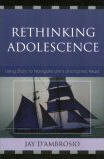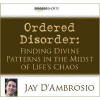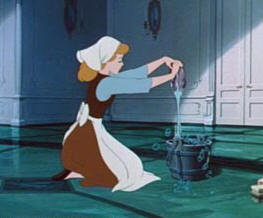
A few years ago, I had a thirteen-year-old student named Darcy. Darcy had faced a great deal of hardship in her young life. Her father wasn’t in the picture at all, and her mother worked three jobs just to make ends meet. Because her mother was never home, Darcy was essentially both mother and father to her two brothers, but her older brother had physically abused her, and her younger brother, though she loved him, needed more than she had to give. She had managed to get herself into quite a bit of trouble in school, by way of fights, shouting matches with teachers, and outbursts. Most likely, she had begun to agree with the voices that told her that she needed to be “tough” to survive, not to “take any crap” from anybody.
One day, I noticed tears streaming down Darcy’s face, and I approached her in the hallway in between classes to see if I could help. As Darcy stood by her locker weeping, I handed her a tissue and asked how things were going. Her eyes said it all. Apparently, Children and Youth Services had already contacted her mother, saying that if Darcy got into any more trouble at school, they would remove her from her home and place her with foster parents. And just that morning she had managed to get into an argument with another girl on the bus, and the girl had gone to the principal’s office and turned Darcy in for harassment.
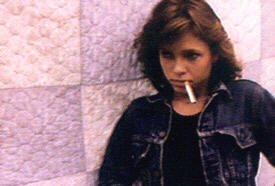
As she tearfully told me what had happened, I suggested that she go down to the office and tell her side of the story to the principal. It was then that she said, “Mr. D, it won’t do any good. I’m the bad kid. Everybody in the school knows I’m the bad kid.” In other words, she had absorbed the message of the voices: “You’re a bad person.”
What the school community didn’t know about Darcy, and what Darcy probably didn’t even remember about herself, was that a week earlier, she had publicly complimented another student in my classroom. Jen, the student she had complimented, happened to be very shy and awkward. After Jen had given a presentation in front of the other students, I asked if anyone had any questions or comments. Darcy immediately thrust her hand into the air. “I think Jen did a great job! It was an interesting report.” I could immediately tell that Jen was beaming on the inside upon hearing those encouraging words from Darcy.
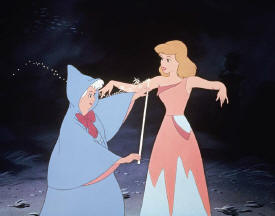
Sensing the despair that Darcy was now feeling, I was faced with a choice. Would I simply pat her on the back and say, “Well, I’m sure everything will work out”? Or would I fight on her behalf? I chose to fight. I challenged the voice that had been labeling her “the bad kid.” I immediately reminded her of the encouragement she had given Jen in the classroom, and what that meant to Jen. At this, she smiled a little. As adults, we must understand how powerful our words are. With our words, we have the power to both hurt and heal. I said, “You see, Darcy, there really is something good and alive inside you.”
I didn’t stop there. Through the use of a story she had probably heard over and over since she was a little girl, I made an appeal to Darcy’s heart. I asked her if she was familiar with the tale of Cinderella. She was indeed. I went on to compare her life now—being forced into a position where she was essentially the caretaker for her brothers and her house—to that of Cinderella, who was forced to scrub and clean by a wicked stepmother and stepsisters. Remember, in the beginning of that story, Cinderella was viewed as a worthless ragamuffin by those around her, and her self-esteem, too, was nonexistent. Like Cinderella, what Darcy probably didn’t realize was that the way people viewed her was not even close to who she really was. It took someone else—her Fairy Godmother—to help Cinderella see who she really was beyond the rags.
When I spoke these words to Darcy, I noticed an ever so slight change in her demeanor. Hope, perhaps? Maybe she saw a little bit of her own story in the medieval tale of Cinderella. My hope is that maybe the thought crossed her mind that she, too, could rise above the opinions and condemnation of others. Stories help the truth sink down into the heart, past the filters of the head.
Labels: adolescence, adolescent, Cinderella, counseling, education, emotions, heart, mental health, mentor, myth, psychology, school, self esteem, story, students, teacher
 Most people have never come face to face with a flesh-eating, one-eyed mythological monstrosity like Polyphemus, but many young people have encountered a giant just as menacing. For a moment, look at bullying again through the eyes of someone who is currently facing it, and you will come to understand that bullying is a monster just as fearsome as the Cyclops of Homeric epic. Bullying strikes at the heart and soul of the adolescent, with a terrible brutality.
Most people have never come face to face with a flesh-eating, one-eyed mythological monstrosity like Polyphemus, but many young people have encountered a giant just as menacing. For a moment, look at bullying again through the eyes of someone who is currently facing it, and you will come to understand that bullying is a monster just as fearsome as the Cyclops of Homeric epic. Bullying strikes at the heart and soul of the adolescent, with a terrible brutality. Adolescents will often begin to see the things that we identify in them. If we point out a liar, a thief, a failure, or a drain on society, they will tend to follow that lead and begin to believe those things about themselves. On the other hand, if you see an adolescent who has the potential to be an honest person, someone who is capable of being trustworthy, or one who could possibly make a significant contribution to the world—and you tell them about it—they are much more likely to see those good characteristics in themselves. Someone once said that the word potential simply means “they haven’t done it yet.” In a sense, that’s true. That is why it is important to follow the mythical pattern we’ve been examining. A gift or task always follows the affirmation. Give students an opportunity to work out that potential in their own lives. Tremendous things have humble beginnings. It is a reoccurring theme in the cosmos. Remember the Big Bang!
Adolescents will often begin to see the things that we identify in them. If we point out a liar, a thief, a failure, or a drain on society, they will tend to follow that lead and begin to believe those things about themselves. On the other hand, if you see an adolescent who has the potential to be an honest person, someone who is capable of being trustworthy, or one who could possibly make a significant contribution to the world—and you tell them about it—they are much more likely to see those good characteristics in themselves. Someone once said that the word potential simply means “they haven’t done it yet.” In a sense, that’s true. That is why it is important to follow the mythical pattern we’ve been examining. A gift or task always follows the affirmation. Give students an opportunity to work out that potential in their own lives. Tremendous things have humble beginnings. It is a reoccurring theme in the cosmos. Remember the Big Bang!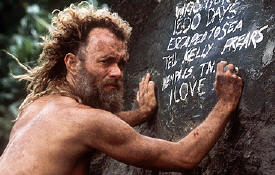 Awareness of the journey often begins when we are in a broken condition, when things are not going our way. Those broken times in our lives occur for just that purpose. They are a wake-up call. When a young person is faced with a painful trial, he is also faced with a choice—a choice between hope and despair. If he chooses despair, he will take one step further along the descending path of cynicism, unhealthy relationships, hesitation, and fear. If he chooses hope, he must acknowledge that there is something greater, that the story of his life has yet to fully unfold. This will take courage, no doubt about it, but as Goethe said, “Be bold, and mighty forces will come to your aid.”
Awareness of the journey often begins when we are in a broken condition, when things are not going our way. Those broken times in our lives occur for just that purpose. They are a wake-up call. When a young person is faced with a painful trial, he is also faced with a choice—a choice between hope and despair. If he chooses despair, he will take one step further along the descending path of cynicism, unhealthy relationships, hesitation, and fear. If he chooses hope, he must acknowledge that there is something greater, that the story of his life has yet to fully unfold. This will take courage, no doubt about it, but as Goethe said, “Be bold, and mighty forces will come to your aid.” A few years ago, I had a thirteen-year-old student named Darcy. Darcy had faced a great deal of hardship in her young life. Her father wasn’t in the picture at all, and her mother worked three jobs just to make ends meet. Because her mother was never home, Darcy was essentially both mother and father to her two brothers, but her older brother had physically abused her, and her younger brother, though she loved him, needed more than she had to give. She had managed to get herself into quite a bit of trouble in school, by way of fights, shouting matches with teachers, and outbursts. Most likely, she had begun to agree with the voices that told her that she needed to be “tough” to survive, not to “take any crap” from anybody.
A few years ago, I had a thirteen-year-old student named Darcy. Darcy had faced a great deal of hardship in her young life. Her father wasn’t in the picture at all, and her mother worked three jobs just to make ends meet. Because her mother was never home, Darcy was essentially both mother and father to her two brothers, but her older brother had physically abused her, and her younger brother, though she loved him, needed more than she had to give. She had managed to get herself into quite a bit of trouble in school, by way of fights, shouting matches with teachers, and outbursts. Most likely, she had begun to agree with the voices that told her that she needed to be “tough” to survive, not to “take any crap” from anybody. As she tearfully told me what had happened, I suggested that she go down to the office and tell her side of the story to the principal. It was then that she said, “Mr. D, it won’t do any good. I’m the bad kid. Everybody in the school knows I’m the bad kid.” In other words, she had absorbed the message of the voices: “You’re a bad person.”
As she tearfully told me what had happened, I suggested that she go down to the office and tell her side of the story to the principal. It was then that she said, “Mr. D, it won’t do any good. I’m the bad kid. Everybody in the school knows I’m the bad kid.” In other words, she had absorbed the message of the voices: “You’re a bad person.” Sensing the despair that Darcy was now feeling, I was faced with a choice. Would I simply pat her on the back and say, “Well, I’m sure everything will work out”? Or would I fight on her behalf? I chose to fight. I challenged the voice that had been labeling her “the bad kid.” I immediately reminded her of the encouragement she had given Jen in the classroom, and what that meant to Jen. At this, she smiled a little. As adults, we must understand how powerful our words are. With our words, we have the power to both hurt and heal. I said, “You see, Darcy, there really is something good and alive inside you.”
Sensing the despair that Darcy was now feeling, I was faced with a choice. Would I simply pat her on the back and say, “Well, I’m sure everything will work out”? Or would I fight on her behalf? I chose to fight. I challenged the voice that had been labeling her “the bad kid.” I immediately reminded her of the encouragement she had given Jen in the classroom, and what that meant to Jen. At this, she smiled a little. As adults, we must understand how powerful our words are. With our words, we have the power to both hurt and heal. I said, “You see, Darcy, there really is something good and alive inside you.”

